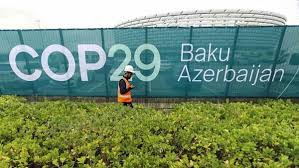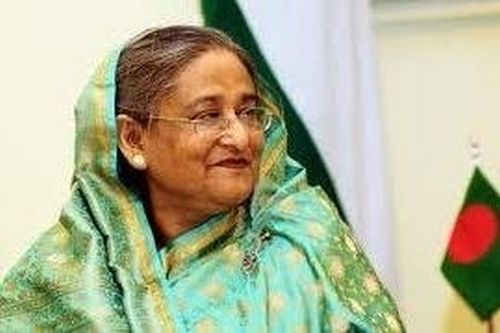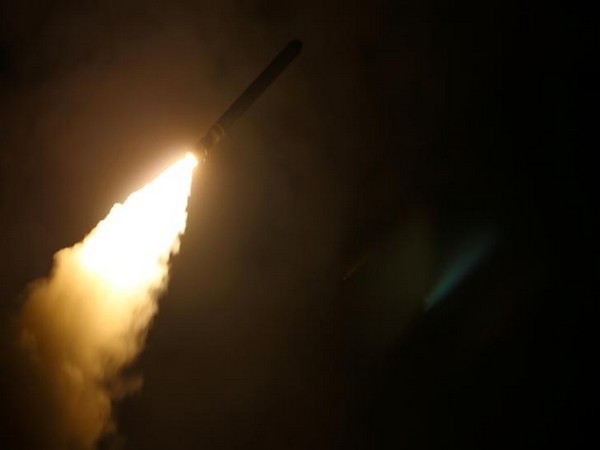Baku (Azerbaijan): At COP29 in Baku, India expressed frustration with developed countries for not seriously discussing how to support climate action in developing nations, saying it is impossible to tackle climate change without financial and technological help.
Delivering a statement in the closing plenary of the subsidiary bodies’ meeting on the Mitigation Work Programme (MWP) on Saturday, India said developed countries, which have historically contributed the most to greenhouse gas emissions and have more resources and the ability to act on climate change, have repeatedly delayed climate action and continuously shifted goalposts.
“We have seen no progress in matters critical for developing countries (during the last week). Our part of the world is facing some of the worst impacts of climate change with far lower capacity to recover from those impacts or to adapt to the changes to the climatic system for which we are not responsible,” said India’s deputy lead negotiator Neelesh Sah.
He said the MWP is meant to help, not punish, and must respect each country’s right to set its own climate goals based on its unique needs and circumstances.
Sah said that if there are no means of implementation — financial support, technology, and capacity-building — developing and low-income economies cannot cut greenhouse gas emissions and adapt to its effects.
“How can we discuss climate action when it is being made impossible for us to act even as our challenges in dealing with the impacts of climate change are increasing?” the Indian negotiator said.
India said developed countries with the highest capacity to take climate action had “continuously shifted goals, delayed climate action, and consumed a highly disproportionate share of the global carbon budget”.
“We now have to meet our developmental needs in a situation where the carbon budget is depleting and the impacts of climate change are increasing. We are being asked to increase mitigation ambition by those who have shown no such ambition — neither in their mitigation efforts nor in providing the means of implementation.”
“The bottom-up approach is being attempted to be made into a top-down approach, in turn attempting to turn the whole mandate of the MWP and the principles of the Paris Agreement upside down. For the past week, at the ‘finance COP’, we have been frustrated by the unwillingness of developed countries to engage on this issue,” Sah said.
At COP29, countries are discussing how the MWP — created two years ago at COP27 in Sharm el-Sheikh, Egypt, to help support mitigation — should work and what it should focus on.
Consultations on the MWP have remained tense, with developing countries saying that it was meant to help nations share ideas, experiences, and solutions for cutting emissions.
They argue that it was not supposed to create new targets or force any country to take specific actions.
On the other hand, developed countries want the MWP to push for stronger, more immediate action from all countries.
Overall, a new climate finance package to help developing nations reduce greenhouse gas emissions and adapt to climate change is the top priority of this year’s UN climate talks.
In 2009, developed countries promised to provide USD 100 billion every year by 2020 to support climate action in developing countries, but this goal was only met in 2022.
Of the money provided, about 70 per cent came as loans, which increased the financial burden on low-income countries already struggling with the impacts of climate change.
With climate impacts worsening, developing countries need at least USD 1.3 trillion every year in financial support.
They argue this should come from developed countries’ government funding, not from the private sector, which is driven by profit and not accountable to the UN climate process.
There has been little progress on this issue during the talks, with developed countries pushing for the climate finance package to be a “global investment goal”, including money from all sectors — public, private, domestic, and international.
“Climate finance cannot be changed into an investment goal when it is a unidirectional provision and mobilisation goal from the developed to the developing countries. The Paris Agreement is clear on who is to provide and mobilise the climate finance – it is the developed countries,” India’s lead negotiator Naresh Pal Gangwar said on Thursday during a high-level dialogue on climate finance.
Some developed countries led by the EU and the US argue the global economic landscape has shifted significantly since 1992. They suggest nations that have become wealthier since then, like China and some Gulf states, should also contribute to the new climate finance goal.
Developing countries view this as an attempt to shift responsibility from those who have historically benefited from industrialisation and contributed the most to greenhouse gas emissions.
They argue that expecting them to contribute, especially when many are still grappling with poverty and inadequate infrastructure amid worsening climate impacts, undermines the principle of equity.
The potential withdrawal of the US and Argentina from the Paris Agreement has significantly affected the morale of negotiators at COP29.
However, countries like China, the UK, and Brazil have taken a strong leadership role, offering hope for a much-needed deal to maintain confidence in the multilateral diplomatic system.
Negotiators are now looking for a strong signal from G20 heads of governments who will meet at Rio De Janeiro in Brazil on November 18-19.






